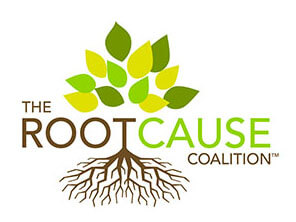More Than a Minority: Redefining Identity, Belonging, and Mental Health Through Sport

More Than a Minority: Redefining Identity, Belonging, and Mental Health Through Sport
TRCC | Bowie State University | National Minority Health Month
This previous month, in recognition of National Minority Mental Health Month, it was essential to uplift narratives that move beyond struggle and stigma. At Bowie State University, one of the nation’s most respected HBCUs, student-athletes are quietly rewriting what it means to be a minority in both academic and athletic spaces—not by minimizing their identity, but by thriving through it.
During a recent visit to Bowie, I had candid conversations with several student-athletes. While many national conversations around race and mental health focus on the challenges minority youth face, these students shared something different, stories of pride, confidence, and rootedness, shaped by their upbringing in one of the most diverse regions of the country.
Rooted in Diversity: The DMV Advantage
Many of the athletes at Bowie grew up in the D.C., Maryland, and Virginia area, where cultural and racial diversity are not only common, they are foundational. For these students, inclusion was not something to search for, it was something they always knew. That upbringing built a baseline of self-assurance and normalized cultural identity in a way that shielded them from the internal questioning so many minorities are forced to confront.
As a result, arriving at Bowie did not require code-switching or self-editing. These students were already secure in their identity. They didn’t arrive on campus searching for belonging. They brought it with them.
Normalizing Excellence, Not Exceptionalizing It
In environments like Bowie and the broader DMV, Black excellence is not rare or romanticized, it is expected. Student-athletes spoke about growing up surrounded by professionals who looked like them, from educators to entrepreneurs. Their lived experience consistently reinforced that success was attainable and natural.
This normalization of representation plays a significant role in supporting mental health. It reduces the weight of tokenism and allows students to focus on performance, not proving their right to be in the room.
Code-Switching as Adaptation, Not Erasure
Code-switching often carries a negative connotation in conversations about racial identity. But at Bowie, students described it not as a loss of authenticity, but as a reflection of emotional intelligence and social awareness. It was not about hiding who they were, it was about meeting others where they are.
That adaptability, developed over years of navigating diverse communities, becomes a tool, not a compromise.
Latino Students and the Power of Being Seen
The mental health impact of belonging was also visible in the experiences of Latino students. One Spanish-speaking athlete shared that growing up in Prince George’s County, Maryland, he never saw ethnicity as a burden. It wasn’t that his culture wasn’t important, but rather that it didn’t define how others viewed him. He was simply seen as himself.
That confidence followed him into college. He did not have to lead with his background or explain it. The environment allowed him to just be. For many minority students, especially in higher education, that sense of freedom is rare, and deeply healing.
Finding Identity Through the Game
Several athletes transferred to Bowie from predominantly white institutions, including James Madison University, Frostburg State, and West Virginia Wesleyan. They described the contrast with honesty. At PWIs, many admitted they held parts of themselves back. Their full personality, shaped by cultural expression, sometimes felt like a disruption.
Even so, the game of football provided a place to belong. What stood out most was how they defined their community. “My people” didn’t necessarily mean others who shared their racial identity. It meant teammates with shared goals, positions, or interests, exactly how it should be.
In this way, sport became a tool for uniting around ability, not identity. It allowed them to show up fully without the burden of stereotypes or assumptions.
Performance Over Perception
When asked if race ever impacted the way they play, every athlete said the same thing, no. On the field, the only question is whether you contribute. There is no time for racial tension, no space for external judgment. It is about execution, effort, and outcomes.
That culture allows them to thrive, not as minorities trying to overcome bias, but as competitors doing what they love. That clarity has a protective effect on mental health, helping to reduce the identity fatigue that often comes from constantly being seen through a racial lens.
Shifting the Narrative: Thriving, Not Just Surviving
While National Minority Mental Health Month was recognized this previous month, the conversation continues. These stories challenge the dominant script around race and mental health. They show that when minority youth are surrounded by inclusion, representation, and support, they don’t just get by, hey flourish.
As we move forward, it’s important to highlight not only disparities, but also spaces of healing and pride. Institutions like Bowie State, and sports like football—are offering young people the chance to form an identity deeper than racial assumptions. They’re proving that mental wellness isn’t just possible, it’s sustainable when rooted in community and purpose.
